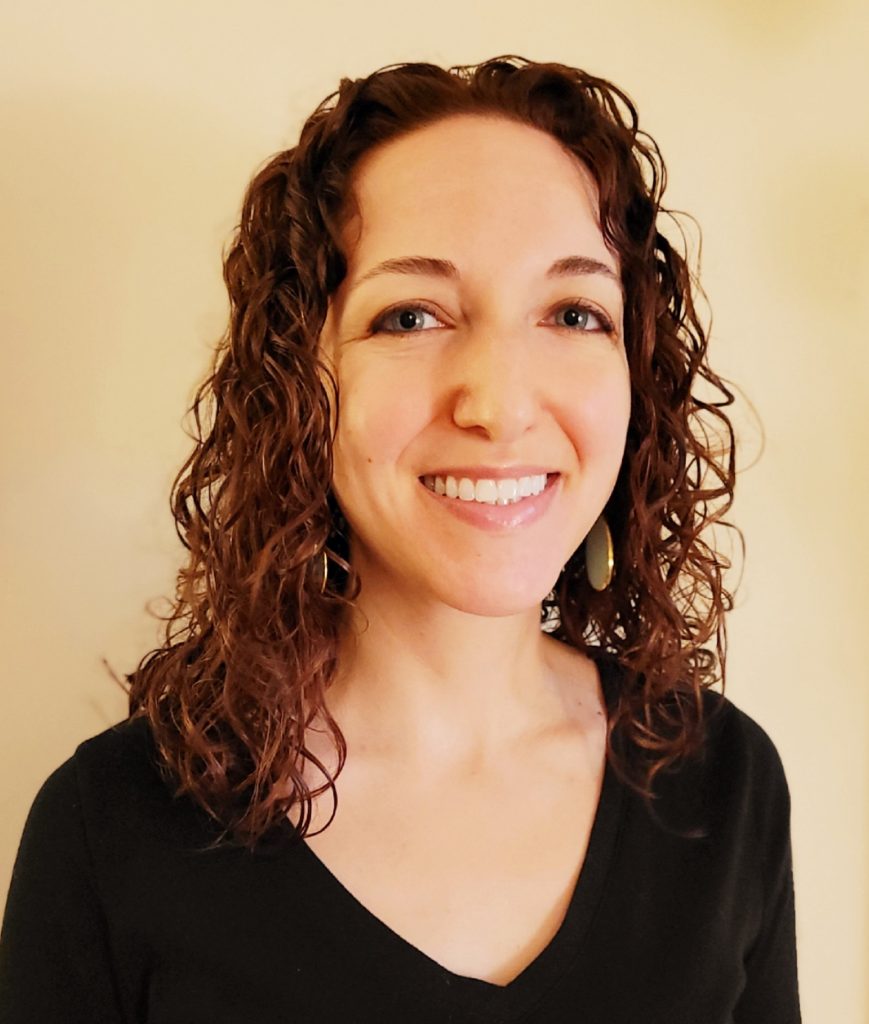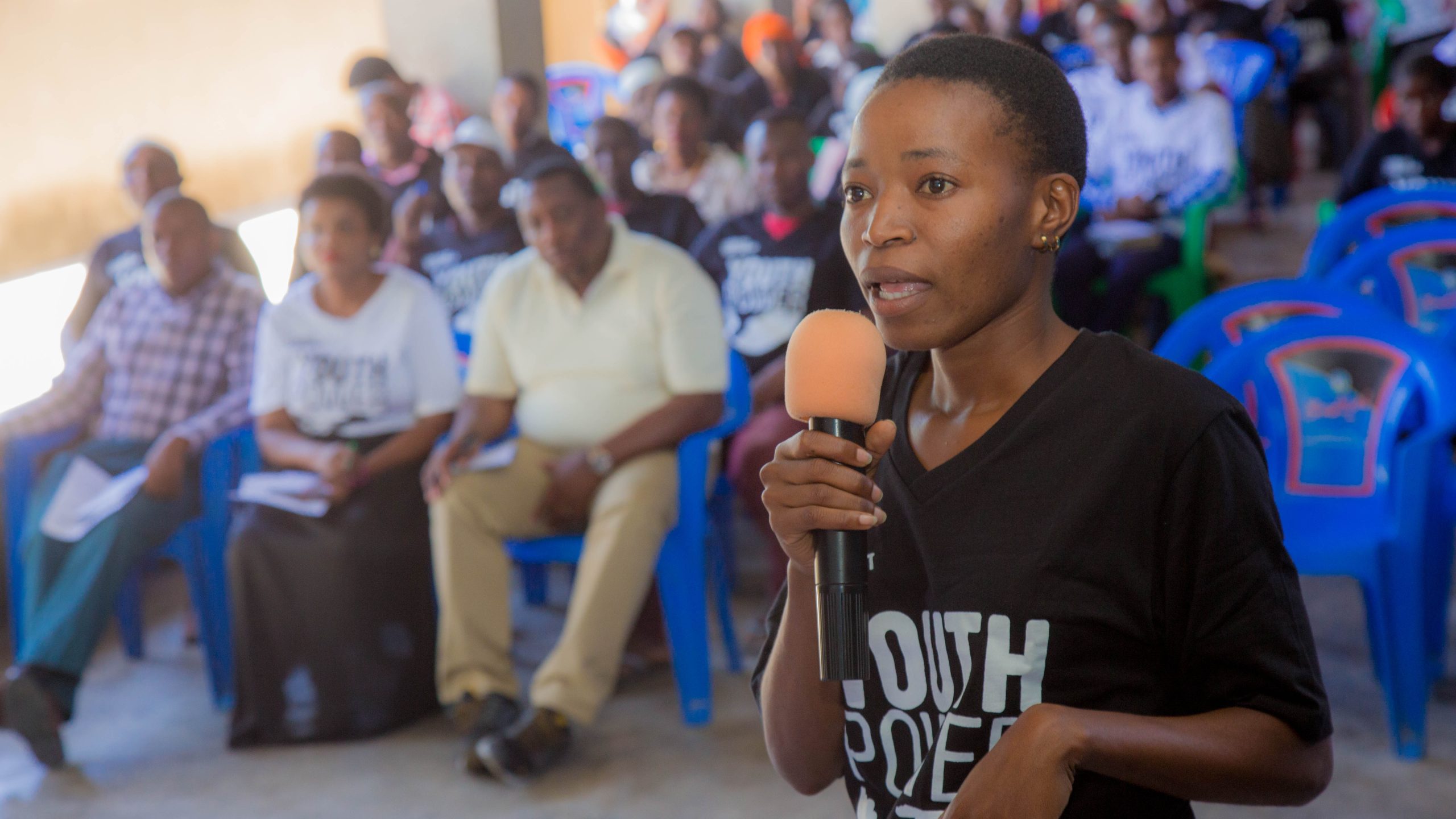Movement Matters #1
The Movement for Community-led Development is starting a monthly column to share human interest stories that illustrate breakthroughs and learning moments across our membership. In this first edition of the new column, Jean Manney (US Director, Restless Development) shares her learnings from being a Movement member and illustrates the power of youth-led and community-led development.
Sera Bulbul: What is Restless Development’s creation story and how did that evolve?
Jean Manney: Restless Development has always been about youth-led change, but we have evolved a lot over the years. We were created in 1985 with a vision of young people leading development and a belief in the power of peer education (which I understand was quite radical at the time!), particularly to address the HIV/AIDS epidemic as well as other pressing issues facing young people and communities. In the early years, British students volunteered in other countries in Africa and South Asia, but we soon pivoted to engaging young people to volunteer in their own communities, recognizing that they were best placed to identify challenges and lead change with and for their communities. That’s been the driving principle since – youth- and community-led development.
From our roots in sexual and reproductive health, we expanded to work on other issues, as identified by young people and communities – civic participation, livelihoods, life skills, and more. We also expanded from supporting young people to deliver training and programs in their communities to also working to shape policy and practice, and connect deep community engagement with national and global advocacy through youth-led research and accountability. For over a decade we’ve worked to strengthen youth civil society, recognizing that they are the key to lasting change at scale.
Over the last several years we have been working to build a new kind of global agency – driven by hubs in 9 countries with distributed global leadership. We’re Restless – always looking at how we can improve, and meet a goal and turn it into a step towards the next goal. We’ve rebuilt our staffing structures to ensure we have youth leadership at all levels today and a leadership pipeline for the future. We’re working to become more gender transformative, feminist, inclusive, and anti-racist.
SB: What compelled Restless Development to join the Movement?
JM: There was a strong synergy with the values of the Movement of course, and also a strong belief in partnership and that we are stronger by joining together with like-minded partners.
SB: How have you been involved in the Movement so far?
JM: We’ve shared and benefited from resources and learning, and have participated in events together at UN and other forums. We’re also partners on a community-led program in Zambia. We’d really like to do more with the Movement!
SB: What, if anything, have you learned from working with the Movement? What about the Movement resonates for you?
JM: That we are a growing movement! It has been helpful to hear about and learn from others who are also dedicated to community-led development. And why it’s so important to have a movement – to advocate for community-led development and build up lessons on what works best with CLD, including when we need to defend against people who are still asking for justification for why to do CLD.
Just like with youth-led development, there are still doubters out there who point to the lack of ‘evidence’ that it’s better than traditional development. I’m reminded of the article discussed in a Movement meeting a few years ago that criticized the impact of community-led development, as well as a recent article in the Atlantic lamenting that community input holds back needed infrastructure development. We all need to speak up loudly about the right that young people and communities have to participate. Criticisms of youth- and community-led development usually come down to whether it’s being done well – this is why the framework and other resources that the Movement is developing are so useful.
SB: It is really exciting to see Restless Development’s new strategy. Can you tell us more about the main changes?
JM: Thanks! This is really an update, not a totally new strategy – we feel that the vision we set out in 2015 for 2030 is still largely relevant. But a lot has changed in the world (pandemic, increasing inequality, climate crisis, threats to democracy and civil society, and a rising anti-rights movement), and youth-led change has also evolved (new movements, a stronger youth civil society, technology, and digital rights). Restless Development has also continued to change on the path we set out for ourselves in 2015 to be a new kind of global agency. What hasn’t changed is why we exist – to support the collective power of young people to make a better world. How we do that is through Power Shifting – we’ve always been about doing development differently (youth- and community-led, “dynamic accountability”) – but we’re now talking more explicitly about shifting power and the root causes behind power inequality, and reinforcing our commitment to being feminist, inclusive, anti-racist, and gender transformative. In addition to our longstanding work to support youth-led change (youth empowerment, community mobilization, youth-led research, and accountability), we’re also increasing efforts to support and strengthen youth civil society, and support institutions, funders, and other partners to more meaningfully engage young people in their work.
SB: What characteristics does RD look for in a great youth leader?
JM: Check out our Youth Power Principles, which were developed by young people in consultation with young people around the world. The principles recognize and celebrate young people’s complexity, diversity and uniqueness.
SB: Could you tell me about a time that Restless Development has used youth-led community-led development in practice? Perhaps an example of young people mobilizing for change in a community?
JM: I’d like to share two short videos that show the power of youth- and community-led development.
The first is from a program in Tanzania where youth accountability advocates identified gaps and proposed solutions on gender equality and sexual and reproductive health – hear from Devota about the impact they’ve had.
The second highlights the efforts of young people in a community in Nepal who successfully secured commitments to end child marriage in the community.
SB: What is one piece of advice or guidance you would give an organization starting their journey to intentionally shift power?
JM: There isn’t a one-size-fits-all model and it won’t happen overnight, but the key is being intentional and honest in addressing power in your organization and how you work, and making power shifting a priority – it can’t just be something that would be nice to do if we had the capacity, but essential to our missions to achieve transformative and just outcomes. Check out Restless Development’s new Power Shifting Checklist which has helpful recommendations on where to start.
Featured Photo Credit: Devota, one of Restless Development’s Accountability Advocates, sharing her findings on gender equality and family planning as part of the Dissemination of Research Findings Dialogue with the community and ward leaders in Iringa, Tanzania.

Jean Manney is the US Director of Restless Development. For over 10 years she has led the growth of Restless Development USA as a strategic hub for the global agency, focused on advocacy and policy influence, gender transformative approaches, resource mobilization, thought leadership and technical assistance on youth engagement in development. Jean has been driving growth and innovation for youth development and civic participation for more than 15 years, including developing service-learning programs and campus-community partnerships at higher education institutions in the US, supporting youth empowerment programs in Guadalajara, Mexico, and researching innovations in volunteering models through the lens of active global citizenship. Prior to launching Restless Development USA, Jean was the Director of Strategic Development at Innovations in Civic Participation (ICP), where she designed and managed national and international initiatives, networks and partnerships that advanced youth civic participation programs and policies. Jean’s Master’s degree combined international development and NGO management at Roehampton University in London and the Universidad Autónoma de Guadalajara. Her B.A. is in International Relations and Spanish from Tufts University.


